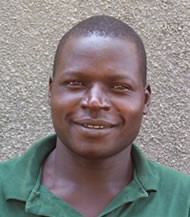Omi in Congo, Democratic Republic of

Photo Source:
Anonymous
|
Send Joshua Project a map of this people group.
|
| People Name: | Omi |
| Country: | Congo, Democratic Republic of |
| 10/40 Window: | No |
| Population: | 174,000 |
| World Population: | 174,000 |
| Primary Language: | Omi |
| Primary Religion: | Christianity |
| Christian Adherents: | 79.00 % |
| Evangelicals: | 3.00 % |
| Scripture: | New Testament |
| Ministry Resources: | Yes |
| Jesus Film: | Yes |
| Audio Recordings: | No |
| People Cluster: | Sudanic |
| Affinity Bloc: | Sub-Saharan Peoples |
| Progress Level: |
|
Introduction / History
The Omi people live in northeastern Congo (DRC), near the Sudan and Uganda borders. Their homeland is filled with economic potential: fertile land, timber forests, grazing, and gold. However, people from outside the region benefit from these resources most, not the Omi themselves. Most Omi make their living from subsistence farming or raising livestock. Some earn a little cash through other trades, primarily raising tobacco as a cash crop.
The Omi people do not hide their anger. This is manifested in bitter quarrels and insults; physical combat is rare. But they also know how to forgive. Sincere reconciliation takes place by sharing a common meal. There is great respect for the extended family and for traditional customs. Sickness, death and setbacks in life are attributed to wrong conduct towards parents, sisters or uncles.
The Omi are open and welcoming, and many people from neighboring groups live among them, notably Lugbara and Kakwa. They are keenly interested in modern medical care and schooling; sadly, these are lacking in the Omi area. For leisure activities, there is traditional dance, hunting, and fishing. Unfortunately, alcohol consumption is impacting the youth negatively, especially those who are uneducated or unemployed.
The Omi have been less affected economically by the recent civil war than many other peoples in eastern DRC because they live near the border with Uganda and have access to imported goods. But the fighting has created instability and a lack of security in the Omi region. As ethnic conflict continues to the south, they may be increasingly called upon to host refugees. No doubt their hopes for development have been deferred by the war's disruption. Christianity is widespread, and Catholics constitute a large majority. The Protestant church sections serving the area are based outside the Omi homeland. Bible translation in the Omi language began in 2003, with the participation of both Catholic and Protestant churches.